MercoPress. South Atlantic News Agency
Tag: China
-
Tuesday, July 24th 2018 - 22:01 UTC
China wants a long-last relationship with Brazil in agricultural goods
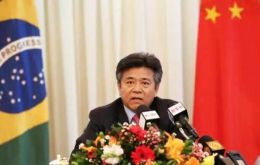
Reports that China wants a “long-last relationship” with Brazil in terms of trade in agricultural goods and other products received attention in Asian markets. The two countries are ready to take their trade relationship “to new levels” amid an escalation of global trade wars, China's ambassador to Brazil Li Jinzhang said during an agribusiness conference in São Paulo on Monday.
-
Saturday, July 21st 2018 - 08:29 UTC
Trump prepared to slap tariffs con all Chinese goods imported to United States

President Donald Trump has indicated that he is willing to slap tariffs on every Chinese goods imported to the U.S. should the need arise.“I'm ready to go to 500,” the president told CNBC's Joe Kernen in a “Squawk Box” interview aired Friday.
-
Tuesday, July 17th 2018 - 09:30 UTC
Beijing/Washington trade dispute: China exports and surplus grow at solid pace
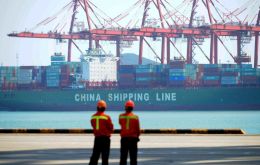
China’s trade surplus with the United States swelled to a record in June as its overall exports grew at a solid pace, a result that could further inflame a bitter trade dispute with Washington.
-
Tuesday, July 17th 2018 - 09:24 UTC
China's growth declines in second quarter; expanding government debt trims Beijing's credit rating
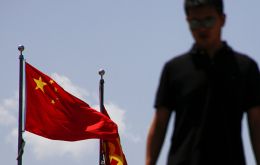
China's economic growth slowed in the quarter ending in June, adding to challenges for Beijing amid a mounting tariff battle with Washington. The world's second-largest economy expanded by 6.7%, down from the previous quarter's 6.8%, the government reported Monday.
-
Tuesday, July 17th 2018 - 08:46 UTC
US launches five dispute actions in WTO challenging China, EU, Canada, Mexico and Turkey

The United States launched five separate World Trade Organization dispute actions on Monday challenging retaliatory tariffs imposed by China, the European Union, Canada, Mexico and Turkey following U.S. duties on steel and aluminum. The retaliatory tariffs on up to a combined US$28.5 billion worth of U.S. exports are illegal under WTO rules, U.S. Trade Representative Robert Lighthizer said in a statement.
-
Wednesday, July 11th 2018 - 08:47 UTC
China confident it can replace US soybeans with supplies from South America
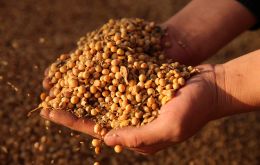
China can increase soybean imports from other countries to reduce reliance on buying from the United States, the president of state grains trader COFCO said in an interview with the Communist Party’s official People’s Daily paper on Wednesday.
-
Monday, July 9th 2018 - 08:31 UTC
Chinese home insulation blamed for gas emissions damaging the ozone layer
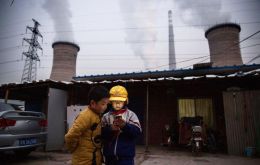
Cut-price Chinese home insulation is being blamed for a massive rise in emissions of a gas, highly damaging to the Earth's protective ozone layer. The Environmental Investigations Agency (EIA) found widespread use of CFC-11 in China, even though the chemical was fully banned back in 2010.
-
Friday, July 6th 2018 - 10:56 UTC
US tariffs on Chinese goods become effective: global trade war takes off?
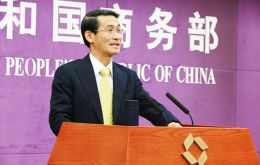
US President Donald Trump fired the biggest shot yet in the global trade war by imposing tariffs on US$ 34 billion of Chinese imports. China immediately said it would be forced to retaliate. The duties on Chinese goods started at 12:01am Friday in Washington, just after midday in China.
-
Friday, July 6th 2018 - 08:16 UTC
The new oil cartel threatening OPEC

When reports emerged that India and China are in talks about forming an oil buyers' club, OPEC was probably too busy with its upcoming June 22 meeting to concern itself with that dangerous alliance. Now, it may be time for it to start worrying.
-
Tuesday, July 3rd 2018 - 09:01 UTC
UN peacekeeping budget is US$ 600 million less than last year's

United Nations member countries on Sunday agreed to a peacekeeping budget of just under US$ 6.7 billion, according to diplomatic sources. This is about US$ 122 million less than what had been recommended by a panel of experts.
